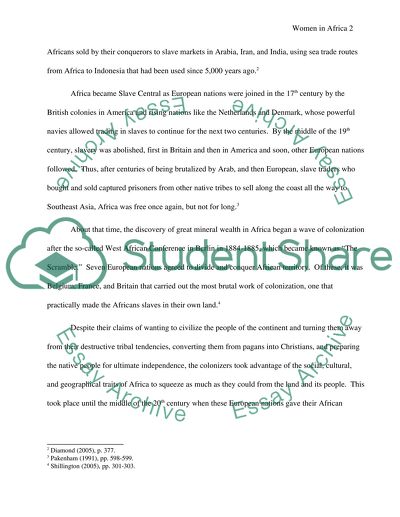Cite this document
(Women in Africa: An Endless Struggle Essay Example | Topics and Well Written Essays - 2250 words, n.d.)
Women in Africa: An Endless Struggle Essay Example | Topics and Well Written Essays - 2250 words. https://studentshare.org/history/1523616-struggle-of-women-in-africa-and-how-they-were-affected-during-the-coloization-of-africa
Women in Africa: An Endless Struggle Essay Example | Topics and Well Written Essays - 2250 words. https://studentshare.org/history/1523616-struggle-of-women-in-africa-and-how-they-were-affected-during-the-coloization-of-africa
(Women in Africa: An Endless Struggle Essay Example | Topics and Well Written Essays - 2250 Words)
Women in Africa: An Endless Struggle Essay Example | Topics and Well Written Essays - 2250 Words. https://studentshare.org/history/1523616-struggle-of-women-in-africa-and-how-they-were-affected-during-the-coloization-of-africa.
Women in Africa: An Endless Struggle Essay Example | Topics and Well Written Essays - 2250 Words. https://studentshare.org/history/1523616-struggle-of-women-in-africa-and-how-they-were-affected-during-the-coloization-of-africa.
“Women in Africa: An Endless Struggle Essay Example | Topics and Well Written Essays - 2250 Words”. https://studentshare.org/history/1523616-struggle-of-women-in-africa-and-how-they-were-affected-during-the-coloization-of-africa.


